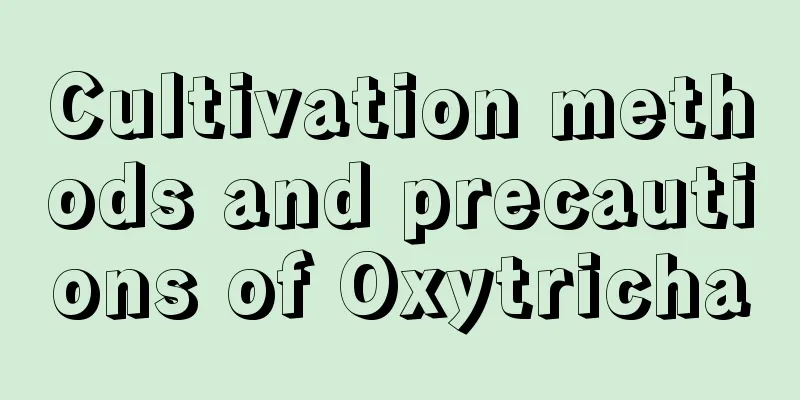Cultivation methods and precautions of pine red plum

Farming methodssoilThe soil requirements of pine red plum are not very strict, but it grows best in slightly acidic soil that is rich in humus, loose, fertile, and well-drained. WateringPine red plum likes a humid environment and can also tolerate drought. For normal maintenance, just keep the soil moist. During the rainy season, pay attention to drainage to avoid waterlogging in the soil. temperaturePine Red Plum likes a cool, humid and sunny environment. The suitable growth temperature is 18℃-25℃, and the temperature must be kept above -1℃ in winter. FertilizationDuring the growing period of pine red plum, apply decomposed thin liquid fertilizer once every 1 to 2 months. illuminationPine red plum is afraid of high temperature and scorching sun, so except for the summer when it needs to be placed in a shade shed, under the shade of a tree or in a cool and ventilated place for maintenance, it should be given sufficient sunlight in other seasons. PrecautionsControl moisture in winterPay attention to the number of watering in winter, keep the soil slightly moist and slightly dry, not too wet. Keep warm in winterIn winter, it needs to be kept warm and can be planted on the south side of the building for microclimate protection. In terms of terrain selection, high slopes, high platforms with smooth drainage are preferred, and depressions should be avoided. In the northern winter, it is best to choose indoor potted plants for maintenance. Controlling Soil pHWhen the soil is too alkaline, use 5% ferrous sulfate solution to improve it, and the pH value should be between 6.5 and 7.0. Prune at the right timeCareful pruning is done once a year after flowering to dwarf the crown, maintain a beautiful tree shape, and encourage the plant to sprout new flowering branches. When pruning, you need to pay attention that except for some branches that affect the plant shape, other branches should not be pruned away completely. Generally, pruned half or two-thirds of them are sufficient. |
<<: How to cultivate Alpinia serrulata at home
>>: Lotus bamboo cultivation methods and precautions
Recommend
How to plant lotus with lotus root and how to maintain it after planting
1. How to plant lotus root 1. Time selection: The...
How to grow hydroponic spider plants well?
As a common indoor plant, many people try to grow...
Can tea cake be used as fertilizer?
Tea Cake as Fertilizer Tea oil cake can be used a...
The correct way to water flowers with pepper water The effect and method of watering flowers
Chili water can be used to water flowers. Chili w...
Does eggplant prefer the sun or the shade? Can it be grown without sunlight?
Does eggplant prefer shade or sun? Eggplant is a ...
How to raise cactus caterpillars to make them bloom quickly and abundantly (how to raise caterpillars in potted plants)
Caterpillar l Old potted plants bloom (picture) H...
How to grow snow claw succulent
Snow Claw Succulent Growing Conditions When carin...
Can Phalaenopsis be planted in the ground?
Can Phalaenopsis be planted in the ground? Genera...
Cultivation methods and precautions of water chestnuts
How to cultivate water chestnuts soil Water chest...
When is the best time to repot gardenia? What month is the best time to repot?
Gardenia repotting time Gardenia needs to be repo...
Should you apply fertilizer first, then water, or first apply fertilizer and then water?
In the agricultural sector,...
Can succulents be repotted in summer?
In seasons like summer, it is not recommended for...
Will it bring bad luck to keep peonies at home? Is it true that old people say peonies cannot be brought into the house?
1. Is there a money-losing family? Peonies are la...
Can jasmine be grown hydroponically?
Jasmine is famous for its fresh fragrance and ele...
Can irises be grown in water? How to switch to hydroponics?
1. Can it be raised in water? Irises can be grown...









